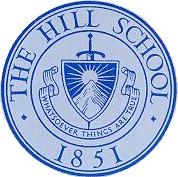| |
|
COLLEGE SEARCH CONSIDERATIONS
The College Advisers are dedicated to helping each
student identify a set of colleges which is most
appropriate for him. Through the use of resource
materials, group meetings, and individual
consultations, the College Advisers assist each young
man in determining the group of colleges to which he
applies. In order to prepare for these decisions,
students are encouraged to make use of the technology
available in the College Advisersí Office, the Ryan
Library, and in the Computer Center. Each student
participates in a series of workshops designed to
introduce each boy to rudimentary features of the
World Wide Web and The Hill School Home Page
(http://www.thehill.org). With these tools, students
are able to make informed decisions regarding the
type of institution they would most like to attend.
Quality Assessment Issues
In order for students and families to be
thoroughly informed about the colleges they are
researching, they need to probe beyond the
traditional information provided by colleges.
Viewbooks and other admissions materials are designed
as "marketing" tools. Campus tours offered
by most colleges provide limited information
regarding the "quality" of the institution.
Prospective students and their families can explore
beyond the superficial information provided by
colleges by considering some of the following
questions.
I. Institutional Mission:
What is the mission of the college?
What programs or practices of the college are
designed to put its avowed mission and
philosophy into action?
How is the college unique? II. Quality of
Teaching:
What is the average class size for
introductory or general education courses
taken by first and second-year students?
What is the average class size for important
skill-development courses (writing, public
speaking)?
Who teaches first-year students? What
percentage of introductory courses are taught
by faculty (as opposed to graduate teaching
assistants)? Experienced, full-time faculty?
What percentage of the faculty is part-time?
Are classes conducted as lectures or
seminars?
Are first-year students expected to do much
writing?
Do students receive much written feedback
from teachers on exams?
What are the expectations for typical faculty
office hours?
What is the extent of the informal
student-faculty contact outside the
classroom?
How are instructors evaluated? Are faculty
expected to publish? Conduct independent
research? Are undergraduates students
involved in research? III. Quality of
Academic Advising:
Is each student assigned a personal adviser?
What is the expected frequency of contact
between the student and adviser?
Can the student choose an adviser? Change an
adviser?
Does the college have trained peer counselors
available to students?
Are the advisers regularly evaluated? IV.
Quality of Student Support During Key
Transitions:
Does the college guarantee on-campus housing
for all first-year students?
Does the college provide a first-year
orientation? Does the program continue after
the start of the semester? Is there a program
designed for parents and families of
first-year students?
Is there an early warning system designed to
identify first-year students in crisis?
How are students made aware of available
support programs? V. Quality of the
Curriculum:
Is there a rationale given for the college's
"core" curriculum? Is it clear why
these courses are required or how they
benefit students personally and
professionally?
Do first-year students share a common
educational experience (freshman seminar or
required course)?
Is the "core" curriculum integrated
throughout various academic departments?
Are courses in academic majors organized to
have a clear beginning (introduction),
middle, and end (closure) to the program?
What fields of study are well recognized or
distinctive in terms of the nature or content
of its courses?
Does the curriculum include a meaningful
honors program for academically qualified
students?
Does the curriculum include a study-abroad
option?
What is the academic calendar (semester,
term, 4-1-4, quarter)? Are there
opportunities for summer study?
Does the college offer programs or courses
for seniors designed to serve as a capstone
experience which facilitates the graduate's
transition from college to post-college life?
VI. Quality of Co-Curricular
Opportunities:
What leadership opportunities are available
for students?
What internship or volunteer opportunities
are available?
Does the college attempt to integrate
students' in-class and out-of-class learning
experiences?
Does the college recognize students who make
contributions to student life and community
life outside the classroom?
Do the residence halls offer educational
programs? VII. Quality of Institutional
Assessment:
What is the college's retention rate?
How long does it usually take for a full-time
student to complete a degree?
Are student-opinion and student-satisfaction
surveys regularly conducted? What do the
students perceive the college's strengths and
weaknesses to be?
Does the college attempt to "track"
its students from entry to graduation? Are
exit interviews conducted?
*This material has been adapted from
"Identifying Educational Quality:
College-Choice Guidelines For Students,
Parents, and Counselors", by Dr. Joseph
B. Cuseo (1993).
TABLE OF CONTENTS
|COLLEGE PAGE|
|
|
|




